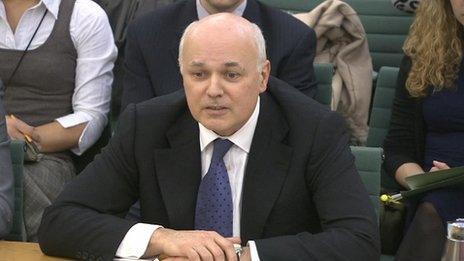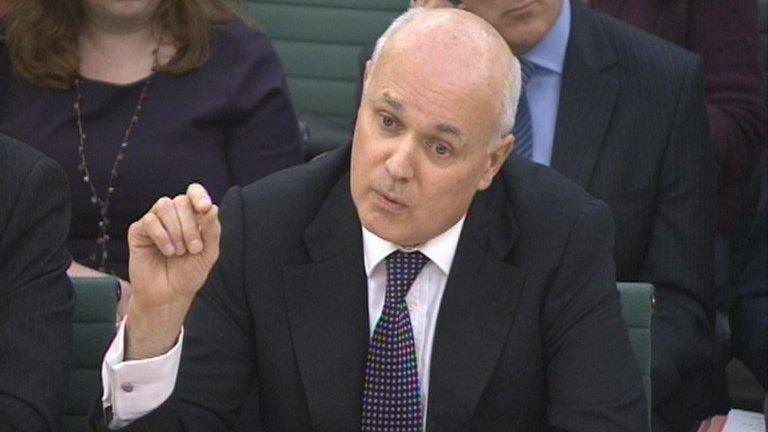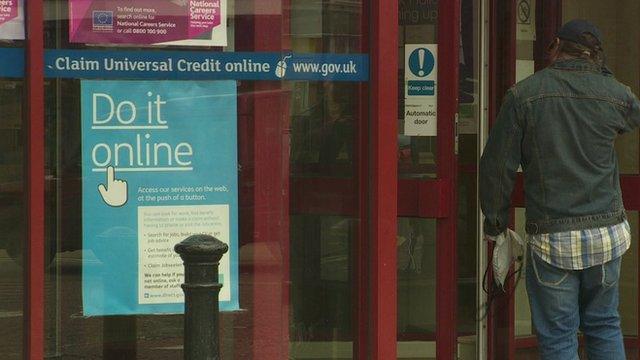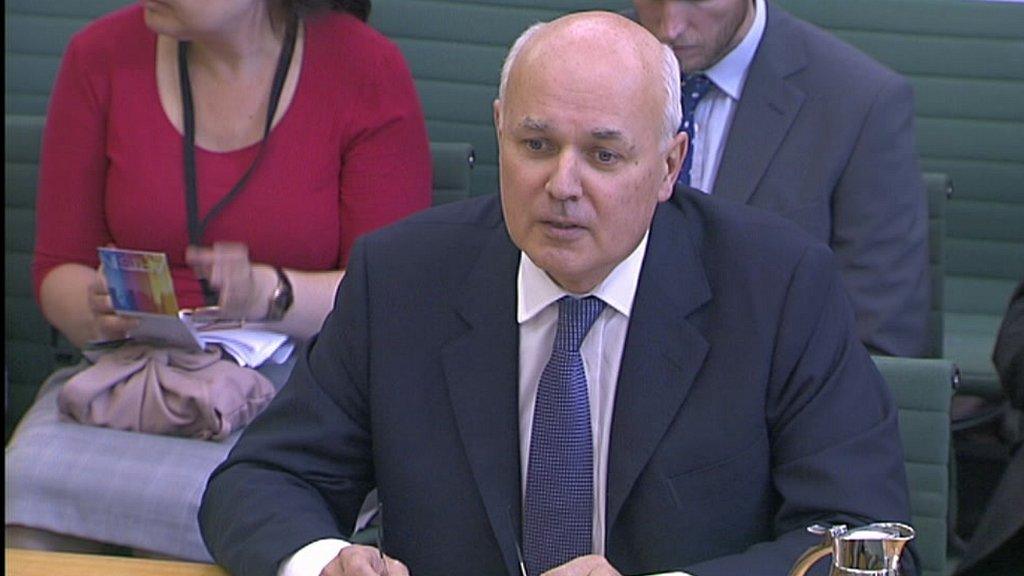Duncan Smith: MPs 'cannot run' my department
- Published

Mr Duncan Smith defended his handling of the multi-billion pound programme
Work and Pensions Secretary Iain Duncan Smith has told MPs they "cannot run" his department as he defended decisions taken over key welfare reforms.
He told a Commons committee he did not have to inform it about "everything happening" regarding universal credit.
But he insisted nothing had been "swept under the carpet" and he had been open about a strategic review of the multi-billion programme and the value of IT.
He said he remained confident about the delivery of the benefit changes.
Universal credit will merge six working-age benefits into a single payment in a far-reaching change designed to encourage work and reduce fraud.
While the principles of the changes have cross-party support, their implementation since 2011 has been strongly criticised.
Targets
Critics say a series of targets has been missed while ministers have acknowledged that about 700,000 people will not be moved on to the new system until after the planned 2017 deadline.
Appearing before the Work and Pensions committee, Mr Duncan Smith was pressed on why he had not told them at hearings in July and September 2012 that experts at the Cabinet Office had been called to review the project amid reports of difficulties with the IT system and other issues.
He said there was "nothing to tell" at the time because the details of how the programme would be altered as a result of the review - including the launch of a number of "pathfinder" pilots - were still being worked out.
"It was an internal review and we were looking at the results of that and trying to make whatever decisions were necessary to reshape this and get it focused," he said.
"With respect, I don't have to tell the committee everything that is happening in the department until we have reached a conclusion about what is actually happening.
"I will take those decisions myself and account for the decisions that were taken and I have done that."
Labour MP Anne Begg, who chairs the committee, said the first MPs had heard of the review was at a hearing in December 2012 and yet ministers expected MPs to be "familiar" with the development.
Technology
She said ministers should have informed the committee about the review and other developments - including a critical report by the Major Projects Authority - earlier as a "matter of courtesy".
Although the committee may have "got to it slightly later", Mr Duncan Smith said, the National Audit Office had been told about the subsequent "reset" of the programme "very early on".
"With respect, I don't think this committee can run the department," he added.
"We account to them for the decisions we have taken and at that stage we were making decisions about the changes we felt were necessary and I am quite content with that."
Mr Duncan Smith also defended the decision to write down the value of software and computing costs by £40.1m, insisting that such a move was standard accounting practice and much of the technology still had value.
"All the IT systems we use at the moment were written down in the accounts many years ago but, with respect, they still function and they still run our benefit system.
"Just because you write down a system over a period of time, it does not mean you have written it off."
The process of re-evaluation had been discussed with and signed off by the spending watchdog, he added.
He added: "The truth is we were not sweeping anything under the carpet. This has been the most detailed and forensic impairment review on anything that has been run by government. It was all in the public domain."
- Published9 December 2013

- Published15 February 2015

- Published5 September 2013

- Published17 September 2012
